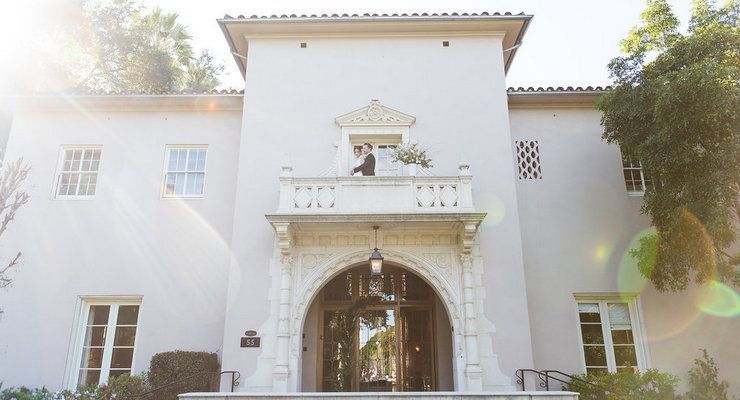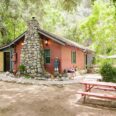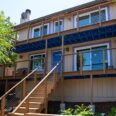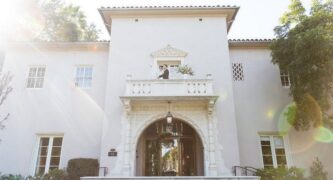
“The terms of the City’s Lease Agreement and Zoning Code are very clear in prohibiting the commercialization of the historic Maxwell House,” said local attorney Richard McDonald, who represents plaintiffs Michael A. Davis and Mary M. West. “Unfortunately, the majority of the City Council, except for Councilmember Madison, chose to ignore them. We wish they had listened to him.”
Filed July 2 in Los Angeles County Superior Court, the petition for writ of mandate seeks to nullify a Conditional Use Permit (CUP) granted to the Western Justice Center (WJC), which leases the city-owned 1929-era Maxwell House at 55 S. Grand Ave.
The CUP allows the nonprofit to host up to 18 private events annually, including weddings and other commercial gatherings.
Davis and West, who share a common wall with the property, allege that the events have brought excessive noise, traffic, and disruption, infringing on their rights as homeowners.
“The commercial for-profit activities on the property cause direct physical harm and significant environmental impacts to Petitioners,” the lawsuit states.
The lawsuit further argues that the city misapplied the California Environmental Quality Act (CEQA) by declaring the project exempt from environmental review, despite what they claim are clear noise and use impacts.
According to news reports and the complaint, some neighbor patios are located just five feet from the event area.
The Western Justice Center has operated from the Maxwell House since 1989.
Founded in 1987, the nonprofit promotes conflict resolution education. City officials say the organization began hosting weddings roughly 15 years ago without proper permits, averaging 47 events annually.
The lawsuit disputes this, stating the city’s figures are inaccurate and misleading.
The City became aware of the events after neighbors complained about noise.
Following several hearings, appeals, and a temporary use permit request from WJC in March, the City Council voted 5-1 on April 7 to approve the CUP with conditions limiting events to 18 per year, banning weddings on major holiday weekends, and requiring they end by 10 p.m. on Saturdays and 8 p.m. on Sundays. A six-month review period was also included.
Councilmembers Jason Lyon and Rick Cole recused themselves from the vote.
Councilmember Steve Madison cast the lone dissenting vote, stating that commercial weddings conflicted with the property’s lease and zoning code. Madison argued that only nonprofit-related community meetings or fundraisers should be permitted after business hours.
The plaintiffs contend the city’s claim that the weddings are “ancillary” to WJC’s nonprofit mission is a mischaracterization. They allege that WJC operates the venue as a full-fledged commercial enterprise, advertising on a dedicated website and social media platforms, charging rental fees, and employing professional event staff.
According to the lawsuit, the commercial nature of these activities not only violates the lease agreement but also raises questions about WJC’s tax-exempt status. It further accuses the city of failing to account for three previous Conditional Use Permits that plaintiffs say preclude such use.
The legal filing includes causes of action for CEQA violations, writ of mandate, declaratory relief, and inverse condemnation. In addition to halting further events, Davis and West are seeking a court order compelling environmental review and compensation for damages related to the alleged loss of enjoyment and value of their properties.
WJC executive director Elissa Barrett told Pasadena Now on Monday that the Center “believes that the City Council struck a fair balance with this permit issue, allowing us to continue our role as steward of these historic properties in a self-sustaining manner and providing our neighbors with extensive safeguards — including drastic reductions in the number and scale of the weddings, access to city code enforcement staff, and frequent public hearings where issues of concern can be addressed.”
“That our neighbors are choosing to pursue litigation rather than the dialogue process outlined in the permit is deeply disappointing, especially in this time when our City is facing so many challenges,” Barrett wrote.
The case has been assigned to Judge Stephen Goorvitch in Los Angeles County Superior Court. A hearing date has not yet been scheduled.














 0 comments
0 comments


